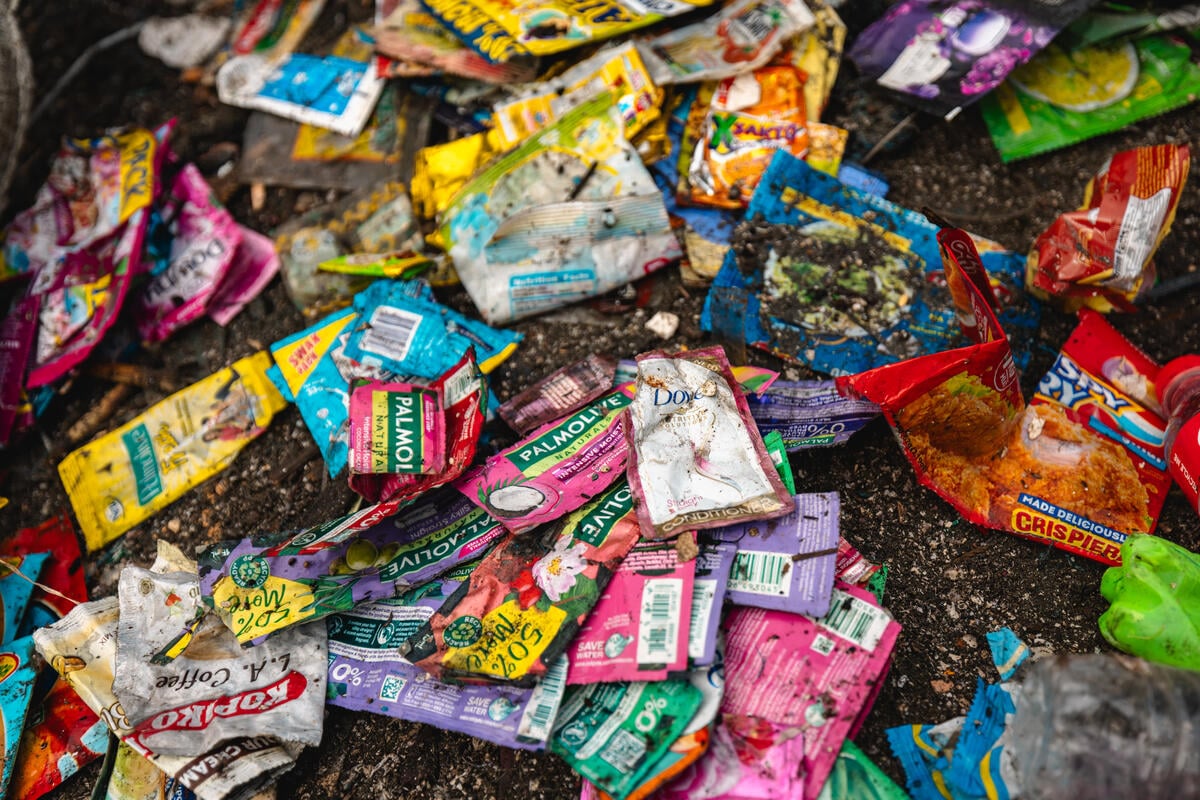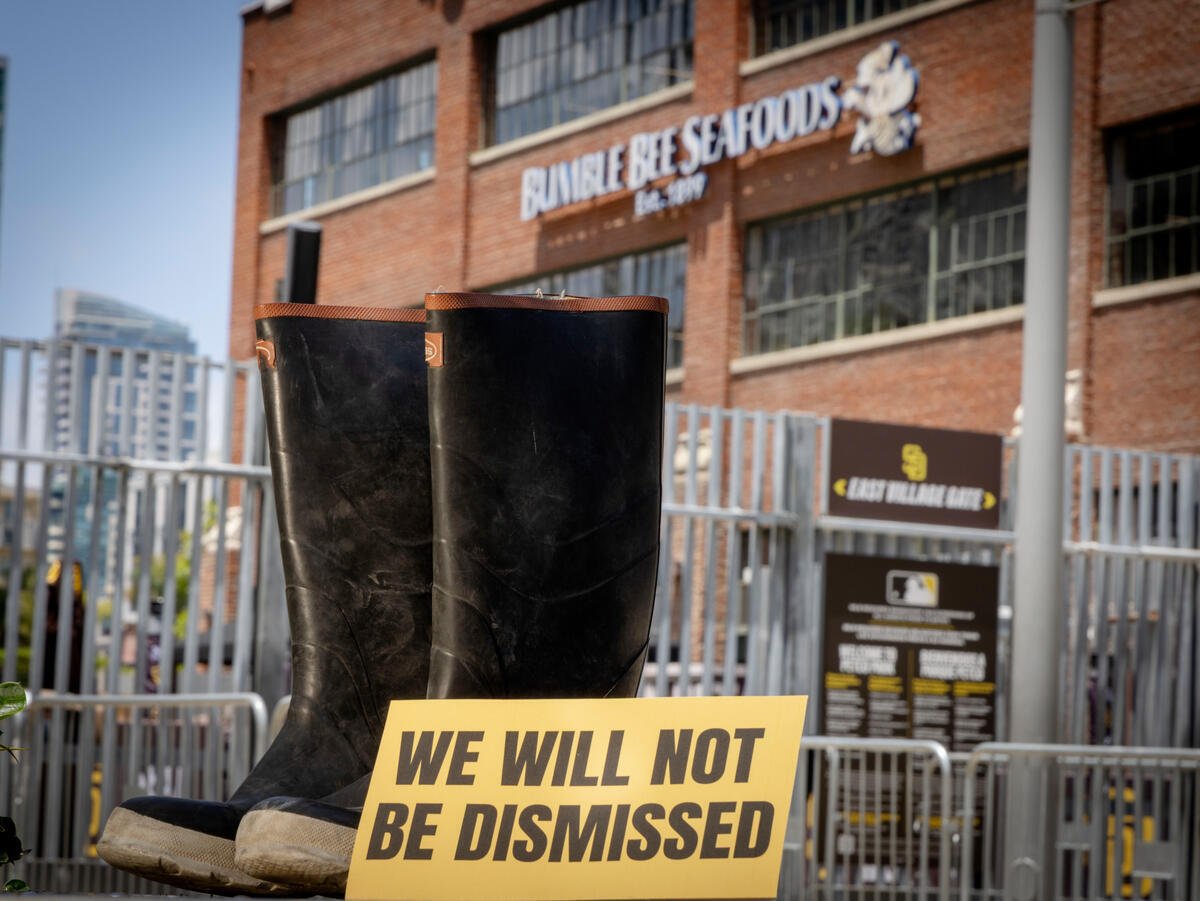With the World Cup under way, many of my country’s cities are filled with people from across the globe who’ve travelled here to take in the atmosphere at the world’s most-watched sporting event.
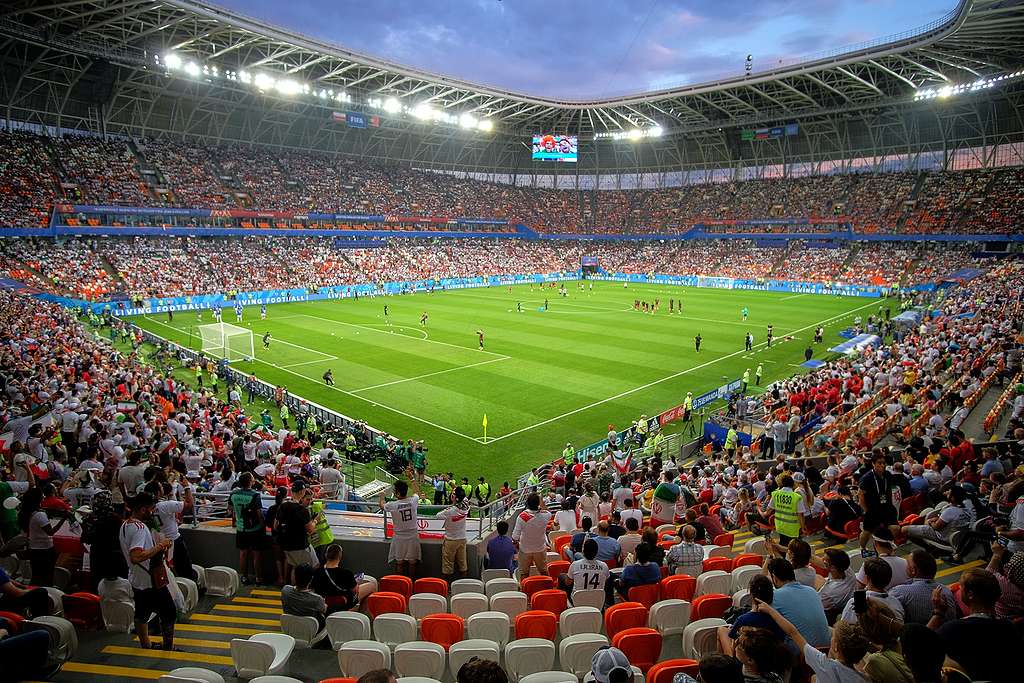
World Cup stadium in Russia
Visiting football fans have been breathing in the atmosphere as they travel from city to city to enjoy the games. But, as many residents of World Cup host cities already know, the electric atmosphere is not the only thing that people will be breathing in.
Air pollution is already a concern to people across the country. Indeed recent research commissioned by Greenpeace Russia highlighted that in Moscow 82% of residents are dissatisfied with the quality of the air they’re breathing. In St. Petersburg it’s 77%. And in Kazan it’s 60%.
People are also well aware of the main cause of the problem. The same research highlighted that in Moscow, St. Petersburg and Rostov-on-Don (Russia’s 10th most-populated city), more than 80% of respondents are aware that emissions from fossil-fuelled vehicles are the primary source of harmful air. Find out how we can help tackle this problem here.
In the countdown to the World Cup kickoff, Greenpeace Russia wrote to the authorities of host cities to find out what they’re doing about the problem.
The good news…

Traffic in Moscow
In Moscow, vehicles below the Euro-3 emissions standard are restricted from entering the city centre – a restriction that has been in effect for several years.
To encourage people to switch to more environmentally friendly electric vehicles, 78 charging stations for electric vehicles have been installed in parking lots across the city. And next year a further 79 are set to be installed.
The authorities are also planning the construction of bicycle paths that will connect neighbouring districts and parks.
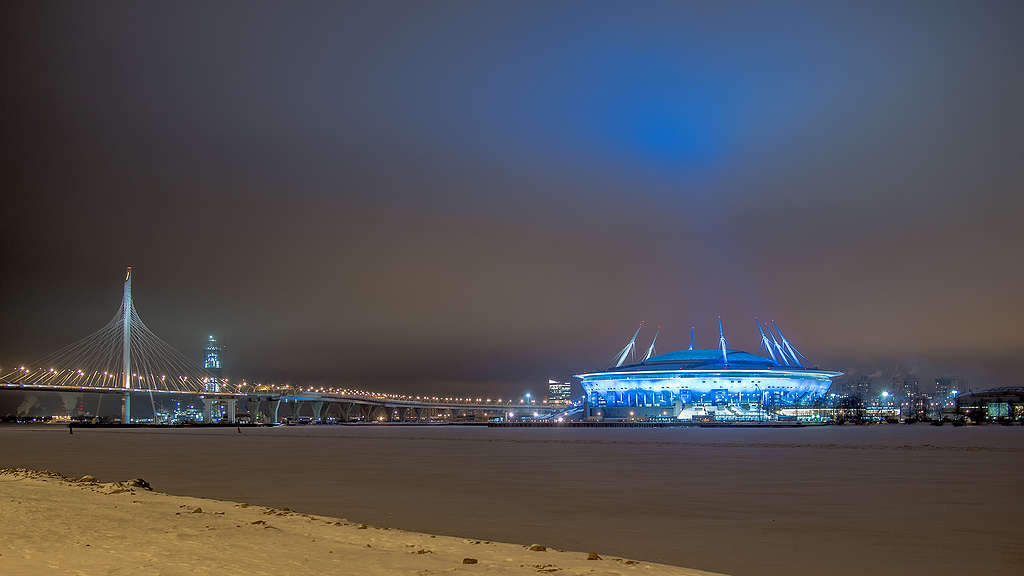
World Cup stadium in St. Petersburg
In St. Petersburg, the local government is preparing to develop electric public transport, including electric trams and buses. The city also has restrictions on dirty transport, including freight trucks.
The city is looking to expand its bike infrastructure, too. Last year, nearly 40 km of bicycle lanes were built and a cycle hire scheme was rolled out. This year, plans are afoot to build another 39.6 km.
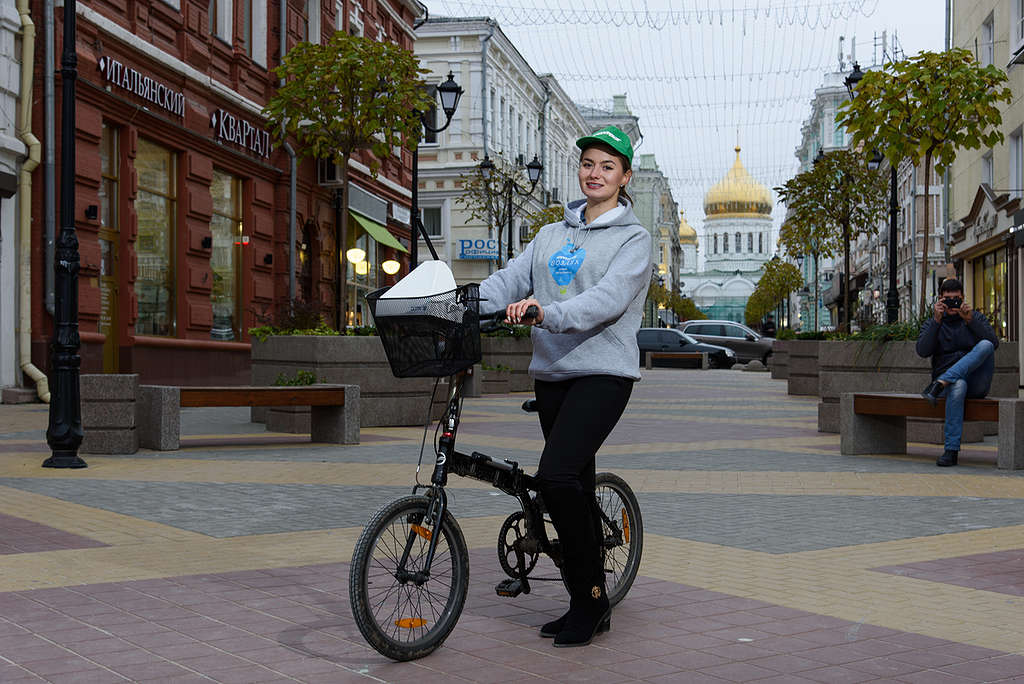
Testing air pollution in Rostov-on-Don
In response to Greenpeace’s survey, the administration of Rostov-on-Don told us that “traditional approaches to solving the problems of congestion only by increasing the capacity of the road network are ineffective and lead only to a temporary improvement of the situation.” And in Yekaterinburg, the authorities said that they’re interested in the development of more sustainable transport, including buses powered by overhead electricity cables, and expanding bike paths during the reconstruction of roads.
The not-so-good news…
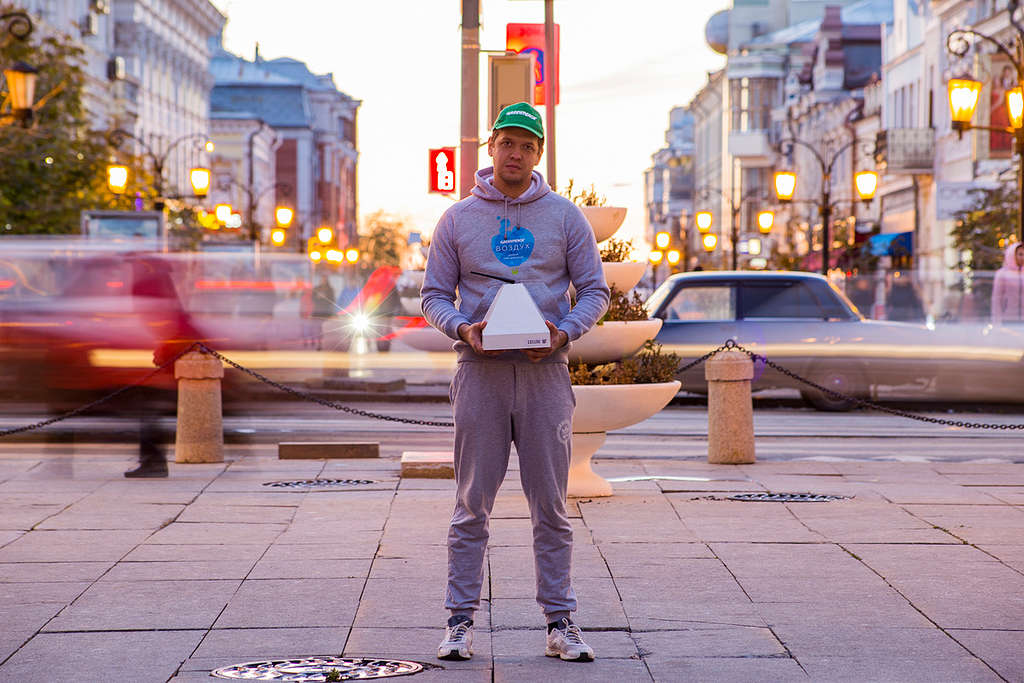
Testing air pollution in Samara
Judging by Samara and Volgograd’s answers to our survey, the authorities of these cities understand that it is necessary to solve the problem of air pollution, but sadly aren’t taking any serious steps to solve the issue yet. They could start by doing more to encourage residents to travel by public transport, cycle, or reduce travel in fossil fuelled cars.
We were even more disappointed by the response we received from Sochi, the city where the Winter Olympics took place four years ago. The city administrators there told us they do not plan to follow the recommendations of Greenpeace and won’t be adopting a strategy that will reduce pollutants.
We received no response from Nizhny Novgorod or Saransk. This only reinforces what Greenpeace’s research has found: in many Russian cities, very few people are satisfied with the measures authorities are taking to improve our air quality.
When all the revelry of the World Cup has died down, we’ll be using the responses we received from city governments to hold local politicians to account on their promises to clean up Russia’s air. To stay informed with our work, follow us on Twitter here. And, if you haven’t already, join the movement for clean air now.
Konstantin Fomin is a campaigner for Greenpeace Russia

